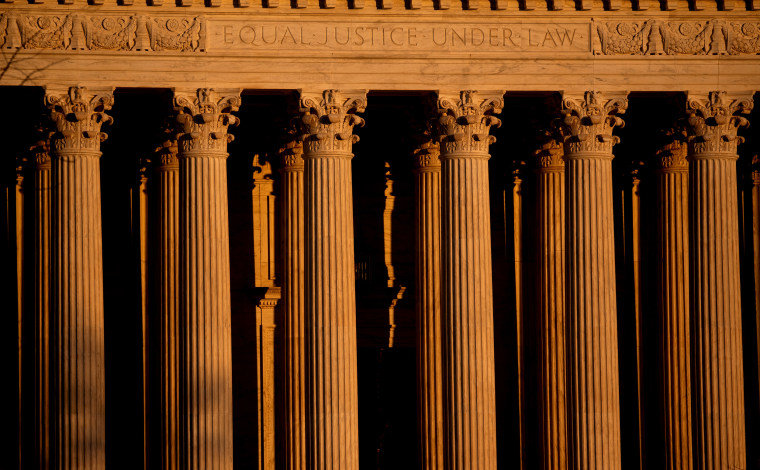For millions of at-risk Americans, facing the very real possibility of losing their homes, last night's news was a genuine disaster. NBC News reported:
The Supreme Court late Thursday blocked the Centers for Disease Control and Prevention from enforcing the federal moratorium on evicting renters during the coronavirus pandemic, a defeat for the Biden administration's effort to continue the moratorium even though the court had signaled that the action lacked the proper legal basis. The current moratorium, which was imposed in early August, had been due to expire in early October. It was challenged by a group of landlords who argued that the CDC had no authority to impose such a restriction on its own.
The 6-3 ruling in Alabama Association of Realtors v. HHS is now available online. The divide among the justices was predictable: The justices chosen by Republican presidents were in the majority, while the justices chosen by Democratic presidents were in the minority.
For those unfamiliar with the controversy, let's circle back to our recent coverage to review how we arrived at this point.
It was last year when the CDC instituted an evictions moratorium, preventing landlords from evicting tenants that couldn't afford to make rent payments. The rationale behind the policy was obvious: As the pandemic took its toll on families and the economy, evictions risked making things worse, forcing people into shelters and others' homes.
The policy sparked lawsuits, and in a complex ruling, the Supreme Court effectively endorsed an expiration date on the policy: At the end of July 2021, the evictions moratorium would be no more.
For the White House and many congressional Democrats, however, that was not the final word. On Aug. 3, the Biden administration issued a new moratorium for areas with "substantial and high transmission" of Covid-19, to expire on Oct. 3.
"The emergence of the delta variant has led to a rapid acceleration of community transmission in the United States, putting more Americans at increased risk, especially if they are unvaccinated," CDC Director Dr. Rochelle Walensky said in a statement. "This moratorium is the right thing to do to keep people in their homes and out of congregate settings where COVID-19 spreads."
The Supreme Court -- without a full briefing or oral arguments -- rejected the CDC policy, suggesting it should be up to Congress to extend the policy, not the administration.
Writing for the minority, Justice Stephen Breyer explained, "The public interest is not favored by the spread of disease or a court's second-guessing of the CDC's judgment. The public interest strongly favors respecting the CDC's judgment at this moment, when over 90 percent of counties are experiencing high transmission rates."
Not one member of the high court's conservative majority agreed.
White House Press Secretary Jen Psaki issued a written statement soon after, which read in part, "In light of the Supreme Court ruling and the continued risk of Covid-19 transmission, President Biden is once again calling on all entities that can prevent evictions -- from cities and states to local courts, landlords, Cabinet Agencies -- to urgently act to prevent evictions."
It's an important point. Last night's court ruling puts many at risk of losing their homes, but there are resources in the pipeline to prevent at least some of these evictions. As the editorial board of The Washington Post explained overnight:
The problem is not the Treasury Department; it is the states and localities that are supposed to be distributing the aid. Some states have had to set up distribution systems from scratch. Others have been overwhelmed with applicants. Technical glitches have plagued application websites. Tenants and landlords lacking Internet access have had a harder time applying. And questions about documenting income and other qualifications for aid have slowed applications. Treasury emphasized once again Wednesday that states need not delay aid while applicants gather all their documents. It also threatened laggard states, saying that those failing to distribute rental aid quickly may lose their funding next month.
The more state and local governments can overcome logistical challenges, the more evictions can still be prevented.
